Instructed by SAS BAN
| 🧠 15+ years of entrepreneurial experience — from tech to education and beyond. | 🚀 I understand the messy, uncertain, and exhilarating reality of entrepreneurship. | 🔄 I am a master of “unlearning” outdated rules — I embrace change as a growth tool. | 📚 I am passionate about rethinking how we learn | 🌍 I am a real-world practitioner, not just a theorist |
| 🧩 I blend strategic thinking and EQ to solve modern business challenges. | 🧭 On a mission to help you build a mindset that thrives in uncertainty. | 🎤 Frequent speaker and mentor — known for making complex ideas actionable. | 🔥 I bring a no-fluff, real-talk approach to learning. |  |
|---|
🚀 Unlearning to Succeed — The Entrepreneur’s Mindset Shift
Welcome to a course designed to flip the script on everything traditional education taught you about success.
If school was about coloring inside the lines, entrepreneurship is about drawing your own map.
| Follow rules without questioning them | Seek the “right” answer and avoid mistakes | Work quietly and independently | Respect authority and wait our turn | Value credentials over contribution |
these habits can actually hold you back.
Let's skim through the lessons I learnt from entrepreneurship
which were counter-intuitive to what I learnt in UNI !

1. Failure is Valuable
In most traditional education systems:| Failure = a low grade | It’s something to be avoided, not embraced | ||
|---|---|---|---|
| Mistakes often result in penalties, embarrassment, or labels like “underperforming” | There's a strong focus on getting it right the first time |
 This creates a fear of failure, making students risk-averse and reluctant to
try things outside of their comfort zones.
This creates a fear of failure, making students risk-averse and reluctant to
try things outside of their comfort zones.
In Entrepreneurship
|
|
Failure is expected | It’s often a sign that you’re trying something new or ambitious | Every failure contains feedback, and successful entrepreneurs learn to extract value from it |
|---|---|---|---|
| The faster you fail, the faster you learn what works | Investors often prefer entrepreneurs who’ve failed before — they're seen as battle-tested |
Reframing Failure in Business
Instead of "failure = bad", entrepreneurs see:| Failure equals: |  |
 |
PROOF of |
|---|
In fact, many startups use the term “pivot” to describe the shift that comes after a failure or wrong assumption.
Examples from the Real 🌐

Airbnb was rejected by investors over 100 times.

Elon Musk’s SpaceX had multiple failed rocket launches before its first successful flight.

James Dyson created 5,126 failed prototypes before building the vacuum that made him a billionaire.
These weren't failures in the school sense — they were iterations.
✅ Entrepreneurial Mindset

🧭 Final Takeaway: In business, failure is not a detour — it is the path.

2. The Best Idea Doesn’t Win — Execution Does
In school settingsThis trains students to overvalue ideation and undervalue implementation.
🚀 What Business Teaches
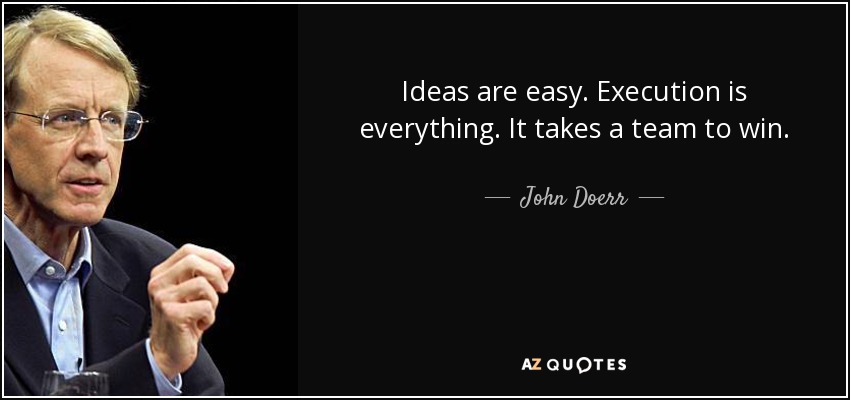
Why Execution Wins
Everyone has them. It’s the person who takes the idea and turns it into a working product that wins.
Once you start building, you uncover problems, user needs, and market truths.
You get traction when customers experience results, not when you explain potential.
⚔️ Examples of Execution Over Ideas
Wasn’t the first search engine. It just made it better and faster than others.

Didn’t invent coffee. It just scaled a well-crafted, consistent brand and experience worldwide.
🛠️ What Execution Involves
✅Talking to real users early
✅Iterating based on feedback
✅Building a reliable team
✅Fixing problems quickly
✅Shipping over perfection
💡 Real-World Comparison
Entrepreneurial Mindset
🧭 Final Takeaway: The world doesn’t reward ideas in your head — it rewards ideas that are brought to life.
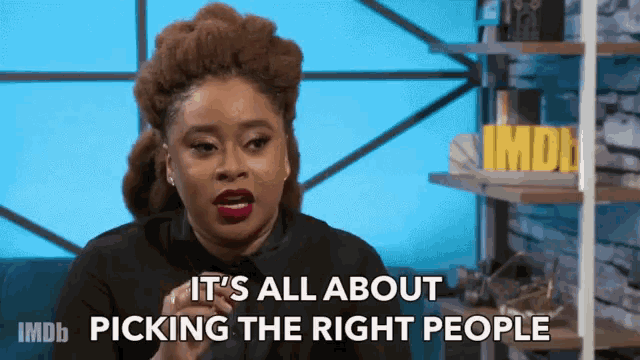
3. You Don’t Need to Know Everything — You Need to Find the Right People.
“Know everything yourself to succeed.”
This leads to the belief that success is based on being a solo expert.
🚀 What Business Teaches
| Business is a team sport, not a solo act. | No one builds a company alone — not even Elon Musk, Steve Jobs, or Oprah. |
| Success often comes from finding people who are better than you in specific areas. | The key is not knowing everything, but knowing who to call when you don’t. |
|---|
💬 “If you’re the smartest person in the room, you’re in the wrong room.”
— Unknown
Why This Matters in Entrepreneurship
| 1. Speed and scale come from delegation. Trying to do everything yourself limits growth. |
2. Complex problems need diverse skills. You need tech, design, sales, operations, legal — all of which one person rarely masters. |
3. Smart founders focus on their "zone of genius" and find others to fill in the rest. |
🛠️ Examples in Action
 Steve Jobs wasn’t an engineer — Steve Wozniak was. Jobs focused on vision and marketing. |
 Elon Musk doesn’t design every part of a rocket — he hires brilliant aerospace engineers. |
 Oprah Winfrey built an empire by assembling great teams in production, publishing, and branding. |
📊 Startup Example
Imagine you’re building a mobile app:| You’re great at marketing but bad at coding. | In school, that gap might hurt your grade. | ||
|---|---|---|---|
| In business, you simply partner with a developer. | Your success comes from combining strengths, not mastering all domains. | ||
✅ Entrepreneurial Mindset Shift
| Stop asking: “How do I do it all?” | Start asking: “Who can help me do this better?” | ||
|---|---|---|---|
| Build a network of freelancers, partners, mentors, and advisors. | Learn to delegate, collaborate, and communicate. | ||
🔁 Real Business Skill
| Hiring the right person is often more valuable than knowing how to do their job. | Recognizing talent, building trust, and creating synergy are core entrepreneurial skills. |
Final Takeaway: Entrepreneurship is not a solo knowledge test — it’s a collaborative puzzle where your job is to find and connect the right pieces.

4. Being Different is Better than Being Better
| In school, we’re trained to compete on being “better” than others |
|
The system rewards conformity with excellence — being the best at the same game everyone else is playing. |
|---|
not by changing the game itself.
🚀 What Business Teaches
In business and entrepreneurship:| Better is subjective, temporary, and hard to maintain. | Being better usually means competing on things like price, speed, or features — which others can easily copy. | Being different, however, creates a category of one. | The market notices, remembers, and pays a premium for what stands out. |
💬 “Different is memorable. Better is forgettable.”
— Sally Hogshead, brand expert
Why Being Different Wins
| 1. Different grabs attention. In crowded markets, sameness is invisible. |
2. Different builds brand identity. People remember how you made them feel. |
|
| 3.Different reduces competition. You’re not trying to win an existing game — you’re creating your own. |
Real-World Examples
Didn’t just make better computers — they made beautiful, human-focused technology. |
 Didn’t just build a better car — they redefined electric vehicles as desirable. |
 Didn’t just make a messaging app — they turned workplace communication into a fun,
humanized experience. Didn’t just make a messaging app — they turned workplace communication into a fun,
humanized experience. |
 Didn’t make a better hotel — they created a completely different model of
travel
and trust. Didn’t make a better hotel — they created a completely different model of
travel
and trust. |
🏁 Competing on Better vs. Competing on Different
| Competing on “Better” More features Lower price Higher specs Risk of being copied |
Competing on “Different” New approach Unique value Memorable experience Hard to copy identity |
🎨 How to Be Different
| Branding Sound and look unlike others. |
Values Stand for something bold or unexpected. |
Design Use aesthetics to surprise or charm users. |
|||
| Storytelling Share an origin story that sets you apart. |
Business Model Break the mold (e.g., subscriptions for socks!). |
||||
⚠️ Trap to Avoid
| Trying to be the “best” product in a mature market usually leads to: |
|
|---|
💬 Final Thought: In business,
standing out is more powerful than fitting in with excellence.

5. There’s No Single ‘Right Answer’
In traditional education:| Most questions have only one correct answer. | You’re taught to memorize and reproduce the “right” answer. | Creativity or alternate approaches are often discouraged if they don’t match the expected format. | Grades reinforce the idea that deviation from the standard = wrong. |
🧠 This builds a mindset that success is about finding the one correct formula and sticking to it.
🚀 What Business Teaches
In entrepreneurship:| There are often multiple valid ways to succeed. | |
|
Strategy depends on:
|
|
| The “right” path for one founder might be completely wrong for another. |
💬 “There are many roads to profitability, product-market fit, or influence — what works for one may not work for another.”
🔍 Real-Life Contradictions
Outcome: Global brand loyalty |  Strategy: Affordable, specs-focused Strategy: Affordable, specs-focusedOutcome: Huge market share |
 Strategy: Direct sales, no ads Strategy: Direct sales, no ads Outcome: Dominated EV market |
 Strategy: Mass advertising Strategy: Mass advertising Outcome: Dominated global beverages |
 Strategy: Anti-consumerism message Strategy: Anti-consumerism message Outcome: Loyalty-driven sales |
⚖️ Key Truth
| In business, judgment beats correctness. | You must evaluate multiple “good” options and pick what’s best for your goals and constraints. | You learn to make decisions in uncertainty, not just choose the right answer in a quiz. |
|---|
🧭 Navigating Multiple “Right” Paths
Instead of asking, “What’s the correct answer?”, entrepreneurs ask:| “What’s the best choice for us right now?” | “What are the trade-offs?” | ||
| “What does the market want from us?” | “What aligns with our values, speed, or resources?” |
🔧 Skills That Matter More Than Certainty
| Experimentation Try, measure, adapt. |
Pattern recognition Spot trends and signals. |
|
| Context awareness Know when a tactic is right for you. |
Risk tolerance No answer is guaranteed, but some are worth trying. |
💬 Final Thought: In business, success is not about finding the answer — it’s about finding your answer, making a decision, and adapting fast. There's no universal formula — just a series of smart, informed bets.

6: Asking for Help is a Strength, Not a Weakness.
In most traditional school systems:| You’re told to work alone on tests and assignments. | Asking for help during a test? That’s called cheating. | Group work is rare or limited, and even then, you're often still graded individually. | |||
| Needing help can be seen as a sign of weakness or “not being smart enough.” | The highest praise goes to the self-sufficient top performer who “did it all alone.” | ||||
|---|---|---|---|---|---|
🧠 This trains you to believe: “I have to prove I can do it all by myself.”
🚀 What Business & Entrepreneurship Teach
In the real world of business:| Nobody builds anything meaningful alone. | The most successful founders and leaders: - Ask for advice constantly. - Lean on mentors, investors, and advisors. - Hire people smarter than themselves in key areas. - Build networks to open doors they couldn’t on their own. |
Entrepreneurship is a team sport. Your ability to ask, learn, collaborate, and delegate determines how fast and far you grow. |
|---|
💬 “You’re only as powerful as your network. You don’t need to know everything — you need to know who to call.”
🛠 Real-World Examples
 Reid Hoffman, LinkedIn co-founder, says: “The fastest way to change yourself is to hang out with people who are already the way you want to be.” Reid Hoffman, LinkedIn co-founder, says: “The fastest way to change yourself is to hang out with people who are already the way you want to be.” |
 Elon Musk didn’t build Tesla or SpaceX technology alone — he recruited top scientists and
engineers. Elon Musk didn’t build Tesla or SpaceX technology alone — he recruited top scientists and
engineers. |
|---|---|
 Oprah Winfrey regularly credits her mentors for shaping her mindset and path. Oprah Winfrey regularly credits her mentors for shaping her mindset and path. |
 Steve Jobs asked Steve Wozniak to help him build Apple’s first computer. Steve Jobs asked Steve Wozniak to help him build Apple’s first computer. |
🔁 School vs. Startup Mentality
| School Thinking “Doing it alone shows strength” “If I ask, I admit I’m weak” “Only cheaters collaborate” “Work quietly and individually” |
Entrepreneur Thinking “Getting help shows strategy” “If I ask, I speed up my learning” “Smart founders build dream teams” “Work openly and connect constantly” |
💡 Why Asking for Help is a Power Move in Business
|
🧭 What Help Looks Like in Business
| Talking to potential customers for feedback. | Reaching out to mentors or peer founders. | Hiring freelancers or team members early. | ||
| Asking for introductions from your network. | Joining communities (founder groups, incubators). | Attending events and openly sharing challenges. |
🧠 Mindset Shift
| Instead of thinking: > “I’ll look weak if I ask.” | ||
| Think: > “I’ll go further, faster with help.” | ||
| It’s NOT about lacking ability. It’s about optimizing your journey. |
💬 Final Thought: In entrepreneurship, the smartest person in the room isn’t the one with all the answers
— it’s the one who knows who to ask and when. Asking for help isn’t a weakness.
It’s a
shortcut to strength.

7. Money Follows Attention, Not the Other Way Around.
In school, you're typically taught:| "Build something great, and people will come." | Quality, effort, and correctness are what get rewarded. |
| Marketing, promotion, or “drawing attention” might be seen as showing off or being superficial. | You’re often discouraged from standing out too much — stay humble, keep your head down, and do the work. |
🧠 This creates the mindset: “If my product/service is good enough, success will naturally follow.”
🚀 What Business Teaches
In the real world:| A great product that no one knows about is a dead product. | The best-known product often outperforms the best product. | Attention is the currency that precedes money. |
| You need visibility, distribution, storytelling, and emotional connection before people even consider your product. | It’s not “build and they will come,” it’s “grab attention and then show them value.” |
💬 “Obscurity is a bigger threat to startups than competition.”
— Anonymous founder insight
🔁 Examples of Attention First, Product Second
| Brand Attention Strategy > Business Outcome |
TESLA Elon Musk tweets, PR buzz, launches > Grew without traditional ad spend |
Kylie Cosmetics Leveraged Kylie Jenner’s audience > Sold $600M+ with minimalist product line |
| Liquid Death Bold branding + viral marketing > Made canned water cool and wildly profitable |
MrBeast Burgers YouTube audience turned into customers > Fastest-growing restaurant brand overnight |
Supreme Limited drops, hype culture > Turned scarcity and visibility into profit |
attention created demand
— and only then did money follow.
🧭 The Attention Economy
We live in a world where:| Attention is scarce — the average person sees 10,000+ brand messages per day. | If you don’t stand out, you get ignored. | ||
|---|---|---|---|
| People buy not just based on quality, but on: - Trust - Visibility - Identity (how your brand fits into their story) |
|||
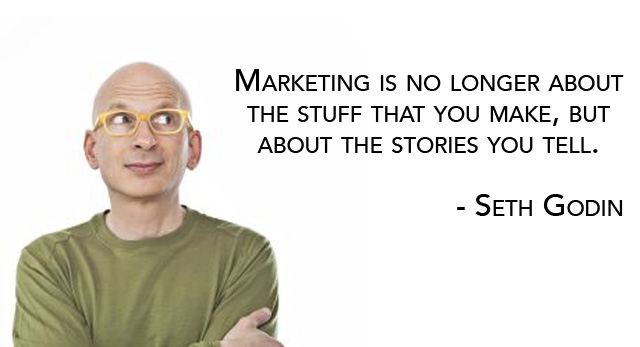
🔧 How to Capture Attention
| 1. Clarity Over Complexity Simple, bold messaging wins. Don't bury your brilliance in jargon. |
2. Consistency is Magnetic Repetition builds familiarity. Familiarity builds trust. |
3. Use Platforms That Scale Attention Social media, YouTube, podcasts, communities, newsletters. |
| 4. Be Worth Talking About If you can't be the best, be the *most memorable*. |
5. Build in Public Share your journey, mistakes, and wins. People love real stories. |
💡 Counter-Intuitive Truth
| You can sell a mediocre product with great storytelling, but you can’t sell a great product if no one knows it exists. |
|---|
that value alone doesn’t guarantee discovery.
💬 Final Thought: In business, you’re not just competing for money — you’re competing for
attention.
If you want money to flow, earn attention first. Then back it up with
substance.
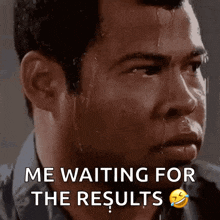
8. Credentials Matter Less Than Results
In school, the system is built around credentials| Your success is measured by your grades, test scores, and degrees. | There’s a strong message: "Get good marks, go to a good college, get a good job." | Authority and credibility are tied to certification — you’re validated by the institution. |
🧠 School mindset: “If I have the right diploma or title, I’ll be trusted and successful.”
💼 What Business (and Life) Teaches
In the world of business and entrepreneurship,credentials take a backseat to results:
| Nobody cares where you studied if you can deliver value, grow revenue, or solve problems. | Clients, users, and investors care about outcomes — not your grades, but your ability to create, lead, and ship. | Many successful entrepreneurs (think: Steve Jobs, Richard Branson, Oprah Winfrey) never finished college — but they built empires. |
💬 “Your degree might get you in the door — your results decide whether you stay.”
🔄 Credentials vs. Results: A Real Contrast
| School World “Did you study marketing?” “What was your GPA?” “What school did you go to?” “Did you pass the test?” |
Business World “Can you get me more customers?” “Can you build a product that works?” “What have you shipped, launched, or grown?” “Did your idea survive the market?” |
|---|
🧪 Real-Life Examples
 David Karp, founder of Tumblr: No college degree. Sold Tumblr to Yahoo for $1.1B. |
 Sara Blakely, founder of Spanx: No MBA, no fashion degree — built a billion-dollar brand with $5,000. |
 Jan Koum, co-founder of WhatsApp: Grew up poor, dropped out of college — sold WhatsApp to Facebook for $19B. |
They didn’t wait for credentials to give them permission.
They proved their worth through results.
🔥 Why This Is Empowering
| You don’t need to be “picked” by a university or hiring manager. | You can start building, learning, and growing right now. | ||
| The internet is the new university — your portfolio, GitHub, YouTube channel, or Etsy shop are your new credentials. | |||
adapt quickly, and build something that works.”
📌 Counterintuitive Insight:
A resume might get you the interview — but results are what get you
hired, funded, or followed.
🧭 Mindset Shift:
| Instead of: > “I need more certifications before I begin.” |
Try: > “I’ll start proving my value now — through projects, performance, and persistence.” |
|---|
✅ TL;DR
| School says: Your credentials define your potential. |
Business shows: Your results define your value. | ||
| Build > Brag. Show, don’t just tell. |
|||

9. Discomfort is Part of Growth
In school, you're often encouraged to:| Stick to your strengths — the subjects you're good at. | Avoid failure — wrong answers bring down your grades. | Stay safe — take the class you’ll ace, not the one that’ll stretch you. |
The message becomes: > “Master what you know. Minimize mistakes. Play it safe.”
While that may help you earn a better GPA,it trains you to avoid discomfort
— the very space where growth and innovation happen.
💼 What Business and Entrepreneurship Teach
In the real world — especially in entrepreneurship:| Growth only happens when you stretch beyond your comfort zone. | You deal with risk, rejection, mistakes, and the unknown almost daily. | The best decisions often involve imperfect information and gut instinct. | You grow by doing things that scare you — pitching, building, selling, leading, failing, iterating. |
💬 “Comfort is the enemy of progress.”
— P.T. Barnum
💣 Why Discomfort is Actually a Superpower
| 1. Rejection Makes You Resilient Pitching 100 investors and hearing “no” 99 times? That’s normal. You don’t grow until you learn to keep showing up. |
2. Ambiguity Builds Judgment There’s rarely a clear path. You learn to trust yourself by taking messy, unclear action — then adjusting. |
3. Risk Trains Courage Hiring your first team, quitting your job, launching without certainty — each leap grows your capacity. |
4. Failure Becomes Feedback In school, failing is shameful. In business, failure is how you learn *what not to do again.* |
|---|
🧗♀️ Think Like This
| Starting something new will feel awkward. | Asking for a sale will feel vulnerable. | Publicly launching will feel risky. | Hiring or firing will feel emotionally hard. |
But on the other side of that discomfort?
> New levels of capability, confidence, and clarity.
📘 Real-Life Examples
 Took on media gatekeepers, criticism, and controversy — grew because she kept evolving. Took on media gatekeepers, criticism, and controversy — grew because she kept evolving. |
 Faced massive rejection trying to raise funds for Starbucks. Felt uncomfortable asking again and again — but did it anyway. Faced massive rejection trying to raise funds for Starbucks. Felt uncomfortable asking again and again — but did it anyway. |
 Built rockets with no background in aerospace. Constantly works outside comfort zones. Built rockets with no background in aerospace. Constantly works outside comfort zones. |
through discomfort.
🧠 Mindset Shift
| Instead of: > “This feels unfamiliar — I’m not ready.” |
Try: > “This feels unfamiliar — that means I’m growing.” |
✅ TL;DR
| **School says:** Stay in your zone of excellence. | **Business shows:** Growth only happens in the zone of discomfort. | If it feels scary, awkward, uncertain — you’re likely heading in the right direction. |

10. Rules Can Be Bent or Broken
From an early age, school systems emphasize:| Obedience to structure — rules are made by authorities and should be followed. |
Standardized processes — there’s a “right” way to learn, behave, test, and succeed. |
Punishment for deviation — going against the rules often leads to reprimands or lower grades. |
The implicit message is:
> “Play within the lines. Don’t challenge the system. Success is earned by compliance.”
questioning norms, and independent thinking
— all traits that fuel real innovation.
💼 What Business and Entrepreneurship Teach
In the real world — especially in business:| Disruption happens when rules are broken. | Innovation often starts by asking, “Why do we even do it this way?” | Many of the world’s biggest companies exist today because someone questioned or defied the “established rules.” |
💬 
— it’s about challenging assumptions
that no longer serve progress.
🔥 Examples of Rule-Breakers Who Won
 Broke hotel industry norms. Who would let strangers sleep in their homes? Now it’s a $100B+ business. |
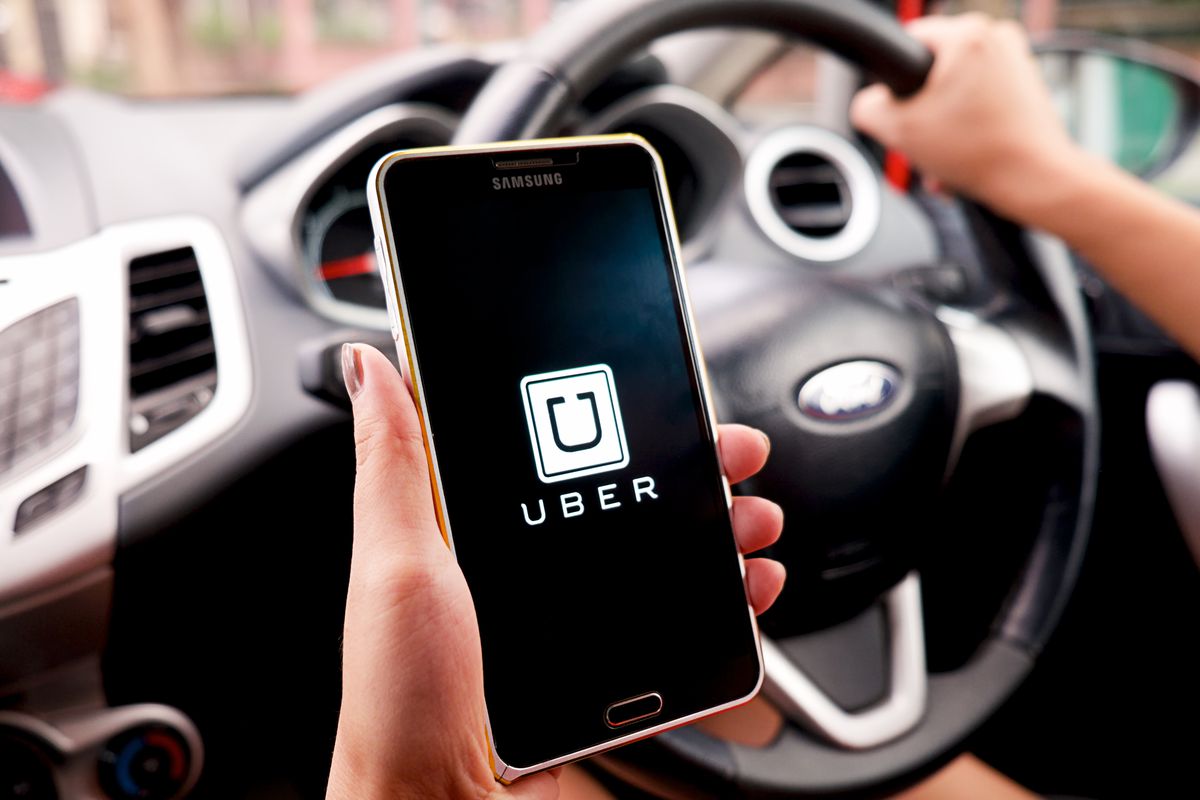 Ignored traditional taxi medallion systems. Faced legal battles, but changed how the world moves. |
 Defied the auto industry by selling cars online, ditching dealerships, and focusing on electric vehicles when others scoffed. |
 Broke design, tech, and retail rules repeatedly (no floppy drives, no buttons, no styluses). Users followed. |
🧠 Why It’s Counterintuitive
| In school: Rule-followers are rewarded with good grades and praise. | In entrepreneurship: Rule-challengers are rewarded with impact, wealth, and influence — if they pull it off. | The world rarely changes by playing it safe. |
This doesn’t mean you break ethical laws or disregard respect — it means you challenge defaults, rethink norms,
and create new models.
📌 Important Note
| Breaking rules in business must come with responsibility: | - You challenge with intention, not rebellion for rebellion’s sake. | - You test, validate, and adapt — not just throw out the old without a better solution. |
|---|
✨ The best entrepreneurs aren’t reckless rule-breakers — they’re strategic paradigm-shifters.
🧭 Mindset Shift
| Instead of: “I better follow the proven path.” | Try: “What if the ‘proven path’ is outdated? What if there’s a better way?” |
✅ TL;DR
| School says: Obey the rules to succeed. | Business shows: Success often comes from rewriting the rules — or tossing the old playbook entirely. | The future belongs to bold re-thinkers, not passive rule-followers. |
In conclusion
| As you’ve seen throughout this course, the world of business and entrepreneurship often runs counter to what we were taught in school. | While school teaches structure, predictability, and obedience, business rewards experimentation, resilience, and creative rule-breaking. | There are no perfect answers — only bold decisions, rapid feedback, and constant adaptation. | Success no longer belongs only to those with the best grades or credentials, but to those who can capture attention, solve real problems, and keep going when things get messy. |
|---|---|---|---|
| If there’s one truth to remember, it’s this: in entrepreneurship, the “real test” is life itself — and the rules are yours to rewrite. So go ahead, challenge what you've been taught, build bravely, and let the world catch up. |
|||
made with 💖 by @sasban9

